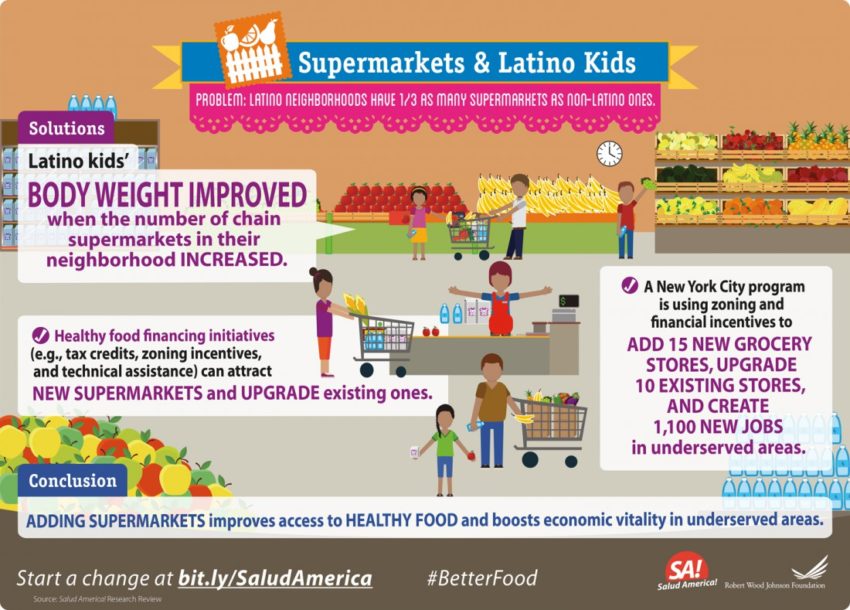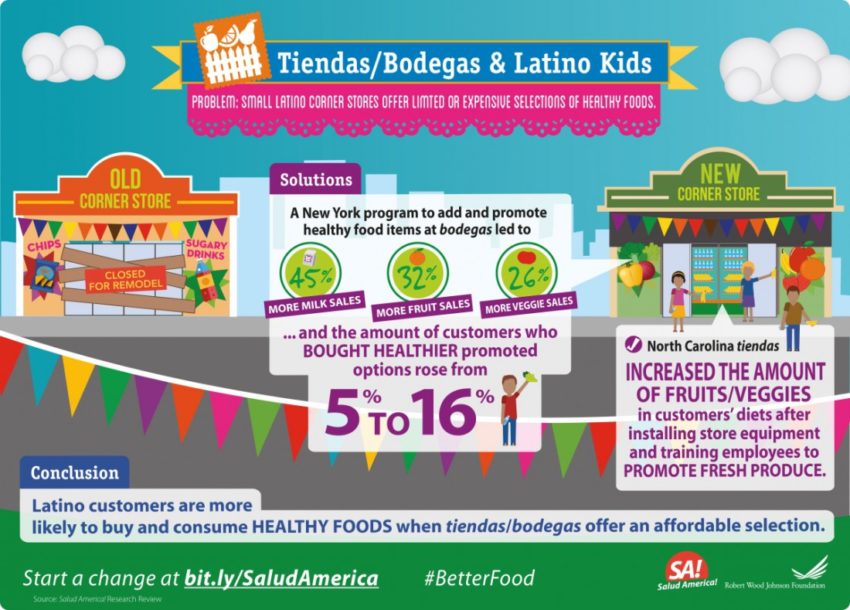Active Spaces & Latino Kids: A Research Review
Abstract Latino kids and families have limited spaces to be physically active. What are the best ways to improve Latino families’ access to “active spaces” like gyms, athletic fields, parks, and playgrounds? Many schools do not provide public access to physical activity facilities. Shared use agreements set up rules for public use of schoolyards after class. Repairing sidewalks, installing street lights, and improving parks can stimulate more physical activity. Creating safer streets can people to walk or cycle to schools, parks, and other family destinations. Also, using marketing and technology to change Latino kids’ physical activity patterns. Read the Issue Brief in English (PDF) Read the Issue Brief in Spanish (PDF) Contents Introduction & Methods. This ...
Read More







